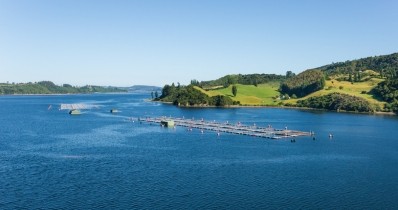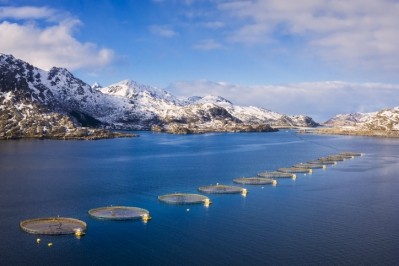Cargill: Sustainability challenges in aquaculture are complex but can be tackled

The global agribusiness giant has just released its 2021 Aqua Nutrition Sustainability Report.
“The challenges ahead of us are significant: aquaculture accounts for over half of the seafood produced globally, and with a rapidly growing global population there is increasing demand on our industry to provide healthy nutrition for all. As one of the largest aquafeed businesses worldwide, Cargill Aqua Nutrition represents a critical link in the seafood supply chain. We are leveraging our scale, our expertise, and our commitment to sustainability to drive the necessary changes to meet the rising need for more responsibly produced seafood.
"Sustainability challenges in aquaculture are complex, but as we demonstrate in this year’s report, also possible to address."
Driving circular and sustainable ingredients
The US headquartered company reported that its fish feed manufacturing systems are becoming more circular. For the first time, its annual fish feed production—for both coldwater and warmwater species—surpassed the use of 50% co-product ingredients, and 40% of our marine ingredients came from trimmings and by-products.
It also flagged initiatives it participated in that are aimed at boosting responsible sourcing. “When a key source of marine ingredients—blue whiting from the North Atlantic—lost its MSC certification in 2020, we stopped buying it. Collaborating with other feed producers, we encouraged the local fisheries to act. In 2021, they entered into a Fishery Improvement Program (FIP), working towards better long-term fisheries management strategies.”
Scaling up use of novel ingredients
To date, Cargill has been supporting the development of insect meals and algal oils through its novel feed ingredient innovation strategy.
“In 2021, we helped launch the Millennial Salmon project to build on this. We also extended our global partnership with Innovafeed to bring novel ingredients to scale. Our commitment to jointly develop and market insect meal as a viable – and sustainable – ingredient in aqua feed will help our customers raise more seafood with less environmental impact."
Refitting facilities for zero emissions
In addition, the US group highlighted how its Bergneset feed mill in Norway was upgraded this year to enable the use of renewable energy sources.
The plant became fully electrified, using renewable hydroelectricity, resulting in almost zero GHG emissions, according to the aqua feed player.
Reducing environmental footprint of fish farming
In March 2021, Cargill launched SeaFurther Sustainability, a program aimed at helping farmers reduce the environmental footprint of their fish by at least 30% by 2030. Just a few months after launch, producers from Norway, Scotland, and Chile joined that initiative. The program is currently focused on identifying and implementing GHG reductions.
“Using our feed formulation tools, together with our life cycle analysis (LCA) data for individual raw materials, we are able to reformulate our feeds to have the same nutritional properties as before, but with a lower carbon footprint. This is done by drawing on the same raw material basket and suppliers, but in a different proportion to the least cost approach.
“Through Cargill’s nutritional expertise, we know the limits of inclusion of individual raw materials in the diet and this gives us a window of opportunity to decrease the footprint. Using the optimization function of the formulation tool, we can force the carbon footprint of the feed lower than the original least cost formulation, creating a feed which will perform the same way in the fish, but with the lower footprint,” Dave Robb, program lead for Cargill’s SeaFurther sustainability initiative, told FeedNavigator in May.
The SeaFurther project, he continued, is based on the idea of creating a common approach and data to deliver sustainable supply chains for feed and farming.







